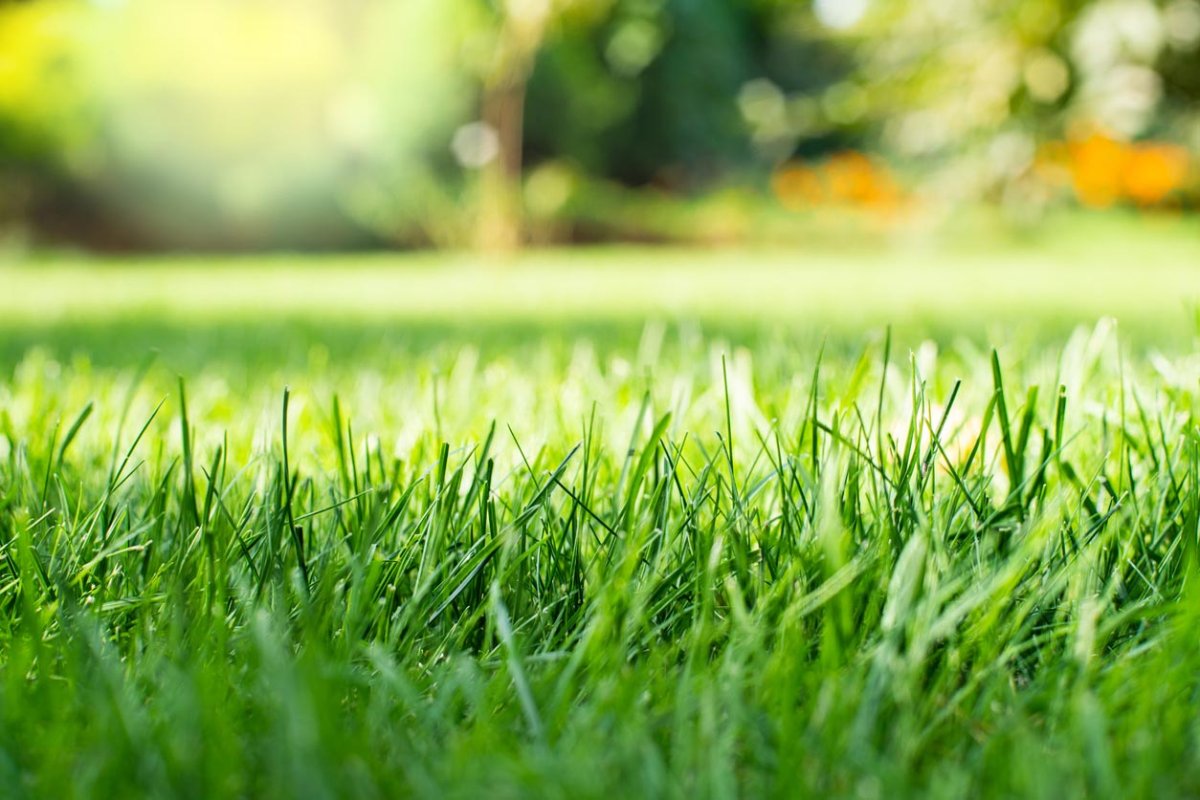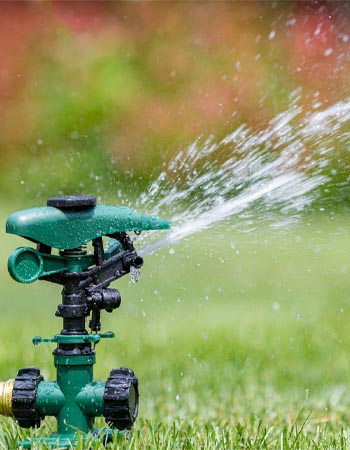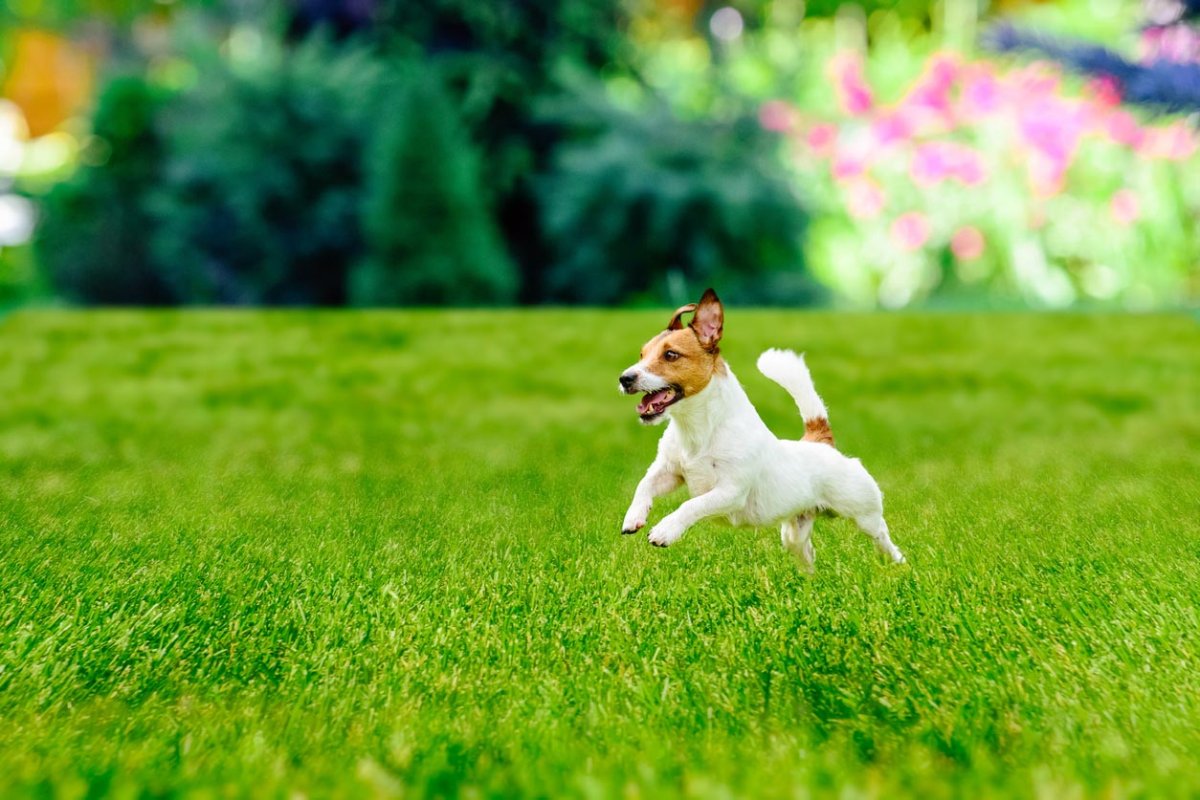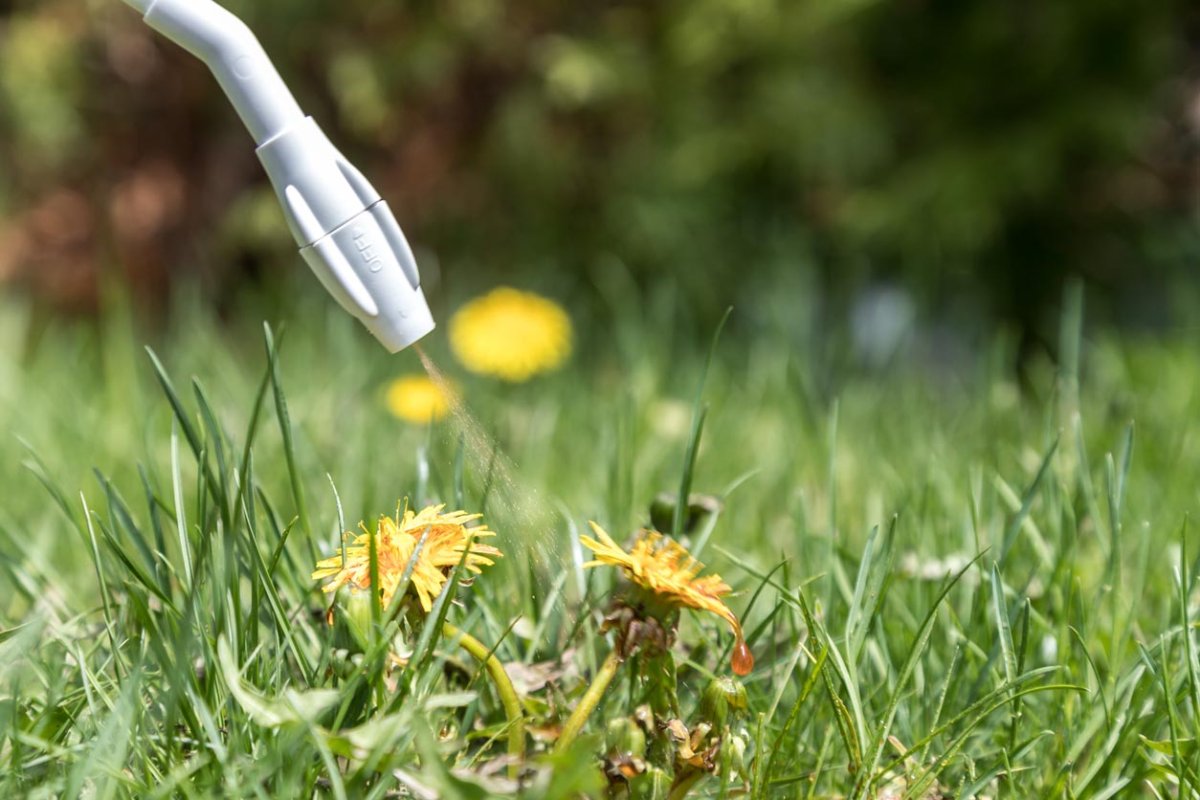

We may earn revenue from the products available on this page and participate in affiliate programs. Learn More ›
Key Takeaways
- Sunday customers report that their top three lawn concerns are drought and water conservation, pet damage, and weeds.
- Because Sunday has customers all over the country (with the most customers in Texas, Colorado, Florida, Minnesota, North Carolina, Illinois, Washington, and New Jersey), at least one of these issues is likely to be a top concern for most homeowners with lawns.
- Solutions for tackling these three core issues are often detrimental to the environment. While many people are making progress toward converting lawns or portions of their lawns to native groundcover, lawns remain fixtures of the typical American suburban home.
- Homeowners concerned about the environment have a range of products (such as those from Sunday) to choose from. This allows them to start incorporating more sustainable lawn care practices without giving up their grass.
Grass lawns have been an integral part of American properties since the late 1800s. They’re a hallmark of suburban living, as well as a symbol of leisure and luxury. To be able to care for a lawn once suggested that one had both the time and the means to do so—a statement that spoke volumes throughout the 20th century.
That may not be as true today as it was 50 years ago, but the lawn has persisted, for better or for worse. Lawns are versatile spaces for entertainment and relaxation, and so they remain despite increasing interest in rewilding parts of a lawn or even the entire lawn. But compared to the desire for a traditional grass lawn, that interest is low. In a 2020 survey, 75 percent of homeowners reported making no changes to their lawns to accommodate a natural or wildflower landscape.
It’s also no secret that grass is generally considered to cause more harm than good when it comes down to the environment. Or, in other words, practices around maintaining lawns can actually contribute to climate change. According to the Piedmont Environmental Alliance, some of the environmental costs include high water usage (grass guzzles water compared with native landscapes), pesticide and fertilizer usage (products that contaminate water with chemicals that are typically detrimental to wildlife and human health), a larger carbon footprint through the use of gas-powered tools, and a more limited habitat for pollinators and other native wildlife.
Despite their concerns about climate change, many homeowners are still searching to beautify their lawns—with or without the guilt of contributing to global warming. Balancing eco-friendly practices and achieving a lush and green lawn seems almost impossible.
Sunday, one of the best DIY lawn care programs and subscription services on the market, revealed its customers’ top three most pressing concerns about lawn maintenance: drought, pet issues, and weeds.
These three types of issues don’t have easy fixes. And their solutions are also not typically climate-friendly.
Because of the prevalence of these issues, standard practices to resolve them may be contributing significantly more to climate change than homeowners may realize.
So what are homeowners to do? Is it possible to have grass without guilt?

DIY Lawn Care. Simplified.
Bob Vila has partnered with Sunday to get your lawn exactly what it needs to thrive. Free Lawn AnalysisIssue #1: Drought and Water Conservation

Drought is a significant climate-change indicator, and it’s a direct result of higher average temperatures. As average temperatures have increased due to climate change, drought has become more frequent, more severe, and longer lasting. What’s more, according to the Center for Climate and Energy Solutions, “recent U.S. droughts have been the most expansive in decades.”
This is not good news for lawns throughout the country.
Since long periods of drought mean little to no rainfall, homeowners must supplement rainfall with water from public or private water supplies to keep grass green.
Homeowners who use the public water supply have also been subject to more water usage restrictions. Municipalities are regulating water usage to prevent scarcity in times of drought.
What’s more, according to Bluefield Research, water prices have outpaced the rate of inflation—which means they’re only going up.
Ultimately, the homeowners, whether or not they are concerned about climate change, are being met with limitations: the rising cost of water or city restrictions on water usage. But they still want to keep the grass green and looking its best.
So it is unsurprising that water conservation—a problem that has and that will likely continue to affect much of the country—is the most pressing issue for homeowners with lawns.
There’s a happy medium. Homeowners who forgo converting grass to native groundcover that’s less demanding of resources can still care for drought-stressed lawns:
- Mowing higher. Raising the mowing height to between 2 and 4 inches, depending on the type of grass, can help lawns be more resistant to heat and periods of drought. The rule of thumb is the longer the blade of grass, the deeper the roots. These roots can provide access to moisture that’s located deeper in the soil.
- Aerating the soil. Small holes in the ground can help the soil absorb moisture and nutrients more efficiently.
- Watering wisely. Watering more frequently isn’t the key to a lush lawn; infrequent but deep watering is.
- Choosing the right products. Some products—if applied at the right time—can help lawns withstand drought conditions without excess water. Sunday’s line of products includes Drought Defense Lawn Treatment and Lawn Aid Heat Stress Prevention Treatment, both of which were created with the environment in mind.
- Read the BobVila.com Sunday review.
“The top issue Sunday customers seek support on is drought. With cities issuing water restrictions, and homeowners feeling the pinch on watering prices, they are looking for a solution to help them save money and water. Sunday customers often seek out products like Lawn Aid or Drought Defense because they contain surfactants that help with water retention in the soil.”
—Ryan Weiss, Head of Partnerships & Services for Sunday

Issue #2: Pet Damage
During the Covid-19 pandemic, many households welcomed new pets. Pets, however, can often be detrimental to the health of a grass lawn.
Homeowners with pets often find themselves in the position of having tofind solutions for issues caused by pets such as unsightly yellow spots in the grass from urine and lawn damage from digging. Dog pee can kill grass, and digging creates unsightly bare spots.
Regardless of the issue, solving these problems often requires reseeding, which also often means a lot of watering. Constant watering to establish new patches of grass is neither the most economical nor the most ecological way to repair pet damage to a lawn.
The most immediate solution is to train a pet to dig or pee elsewhere, or to have a dedicated section of the lawn just for the pet’s needs. However, this is a solution that requires a lot of time and patience—and in some cases, money.
However, some products, like Sunday’s Pet Patch Lawn Treatment for Spots, can help repair existing urine spots and prevent new spots from forming. This might be the best solution for the lawn owner with a concern for the environment.
“During the pandemic, many U.S. households introduced a furry friend. While this brought families lots of joy, it also brought lawns chaos and stress. From digging to urine stains, Sunday customers choose the “Sunday Pet Plan” more than any other to combat the damage our pets inflict on our lawns.”
—Ryan Weiss, Head of Partnerships & Services for Sunday

Issue #3: Weeds
Weeds are a common nuisance for homeowners with grass lawns, and homeowners often turn to powerful chemical herbicides to destroy them.
Weed killers might be effective, but they’re detrimental to the environment. These chemicals can contaminate groundwater and harm the diverse biome in the soil. There are more natural ways to effectively kill weeds and prevent them growing back, such as pulling them by hand.
However, when it comes to using products, homeowners who want to maintain a lush lawn that’s free of weeds can make better choices. Sunday, for example, has a range of products that can help control weeds. Sunday’s products don’t contain harsh chemicals, making them better for the environment—as well as for homeowners, their families, and their pets.
- It really works—the BobVila.com team put Sunday to the test on five lawns across the U.S.
“Sunday’s weed control products are the most popular add-ons when new and returning subscribers check out. With solutions for combating weeds both in-lawn and in the surrounding areas of the yard, Sunday’s Dandelion Doom and Weed Warrior products are effective and less-toxic ways to remove unsightly weeds from yards.”
—Ryan Weiss, Head of Partnerships & Services for Sunday

